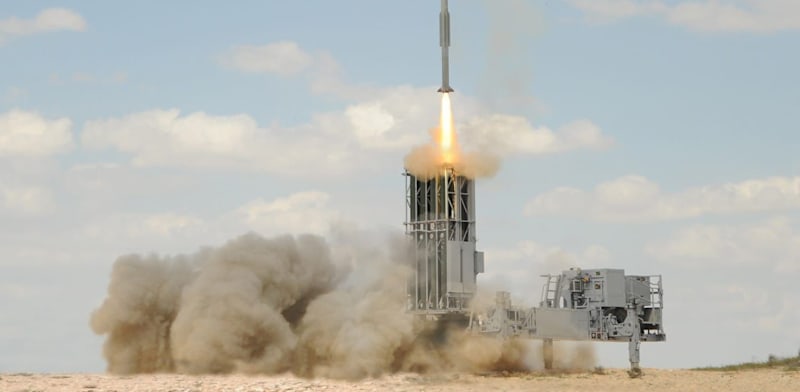ARTICLE AD BOX
Reports of an imminent ceasefire between Israel and Hezbollah raise the question how far stock market rises will go, and what will happen to the shekel and interest rates.
The prospect of a ceasefire agreement in Lebanon has encouraged investors who have been hungry for good news for a long time. The narrowing of the gaps between the returns on the main indices on the Tel Aviv Stock Exchange and those on leading stock indices around the world indicate that investors are pricing an imminent end to the war. At the close yesterday, the Tel Aviv 35 Index was up 22% for the year to date, which compares with a rise of 26% by the S&P 500 in the same period.
The shekel has also responded positively to the latest diplomatic developments, strengthening sharply against both the US dollar and the euro, after it was reported yesterday afternoon that the US had informed the Lebanese government that a ceasefire would be in place "within hours."
The question arises how an arrangement in the north will affect the financial markets. Has the rise in stock prices in Tel Aviv exhausted itself? Or will the local stock exchange continue to outperform globally? Will the shekel continue strengthen in the long term? And how far will government bond yields fall? "Globes" asked senior analysts for their views.
Mizrahi Tefahot Bank chief markets economist Ronen Menachem told "Globes" that in his view a ceasefire on the northern front would be a very positive development at the economic level, both fiscally, and for sentiment on the capital market.
"We will probably see a tendency for additional rises in the stock market and a strengthening of the shekel, which is already happening, a further slight narrowing of spreads on corporate bonds, and further recovery in government bonds. Nevertheless, it must be taken into account that because of the prolonged duration of the war and its intense impact on the economy, it will take time to adapt, and it is fair to assume that all parties will wait to see what the mechanism is and whether it is enforced. There may therefore be nervous volatility in the short term, with every breach of the ceasefire liable to upset the market.
"In any event, a great deal depends on the question whether economic activity that has been damaged in the north will be renewed, and large government expenditure must be taken into account for repair of the devastation that the region has suffered. Moreover, since speculation about the agreement being formulated has been rife for weeks, some of the positive effects that I have mentioned are already priced into the stock, bond, and foreign exchange markets, and it is not clear how far the actual signing of the agreement in itself will be a trigger for substantial rises.
RELATED ARTICLES
"One possibility is that appreciation of the shekel will combine with price rises in the local stock market, which could make investors consider diverting some of their investments from overseas to the local market, although it’s important to remember that because of the optimism over the economic policy of president elect Trump, the US markets could certainly continue to be attractive next year even after the rises of the past two years."
Ran Sinai, chief economist at Ultra Finance, seconds Menachem’s view, and explains: "The situation in which IDF troops are on the ground in the north at the same time as Hezbollah fires at settlements well inside Israel has become part of the routine of the Israeli economy. At the same time, the growing talk of the possibility of an arrangement in the north in the near future arouses optimism on the market, with the expectation of a positive effect on the economy.
"Improvement in the productivity of companies that return to business routine, alongside government spending to rehabilitate the northern region, could signal the start of a positive trend in the capital market. Such optimism could also contribute to greater foreign investment in the economy, which in turn could strengthen the shekel.
"In this situation, it is recommended to monitor bonds and stocks of public companies with production facilities and substantial activity in the north of the country. Nevertheless, it should be taken into account that the improvement in output will become significant only in the next financial year."
Which sectors will be boosted by a ceasefire?
Menachem stresses that the rises on the local stock market took place even before negotiations reached the final straight on an arrangement that will now have to be tested, so that from the point of view of the timing of an entry into the stock market or an increase in exposure, caution and judgment need to be exercised. "The local market has pretty much closed the gap versus overseas markets, and in some cases has overtaken them, so it is not as cheap as it was even a few weeks ago, and that needs to be taken into account in pricing considerations."
He further explains that, at the same time, negative sentiment because of a continuingly worsening security situation sometimes causes too broad a fall on the market, and when things take a positive turn, there will always be companies that have been depressed too far and that will be the first to recover. "In this context, growth companies could be an interesting option. In addition, to the extent that a sustainable calm prevails, sectors that have presumably been hit harder than others, chiefly construction, agriculture, tourism, and traditional industry, which be among the early ones to recover, but here too the process will not necessarily be smooth and rapid.
"Energy companies have succeeded in functioning despite the tension in the north, but a calmer security situation can presumably only be good for them. On the other hand, companies and sectors with inelastic demand, which have been less harmed during the war, such as supermarket chains, or healthcare companies, will naturally receive less of a boost from a ceasefire."
In conclusion, Menachem mentions another question, which is whether a diplomatic solution will lead to the return of foreign airlines to Israel. "If that happens, not only will the situation of local hotel and tourism companies improve, but so will the cost and availability of raw materials and production inputs for industrial companies," he says.
What about the Bank of Israel’s interest rate?
Yesterday, the Bank of Israel announced its decision to leave its interest rate unchanged at 4.5%, in line with market expectations. A few months ago, voices started to be heard saying that the Bank of Israel would even raise its interest rate, but more recently expectations have switched from an interest rate hike to a cut, as the markets started to price in an end to the war.
Menachem estimates that, assuming there is a calming of the security situation that helps a recovery in investment and leads to sharper appreciation of the shekel, inflationary pressures will also diminish (excluding the one-time effect of the hike in the rate of VAT), and the Bank of Israel could, within a few months, consider an interest rate cut. "The basic scenario still indicates that the interest rate will not fall before the middle of next year, but if we do see drop in the intensity of fighting, and the appreciation of the shekel continues, things could be reconsidered."

 3 months ago
120
3 months ago
120







 English (US) ·
English (US) ·